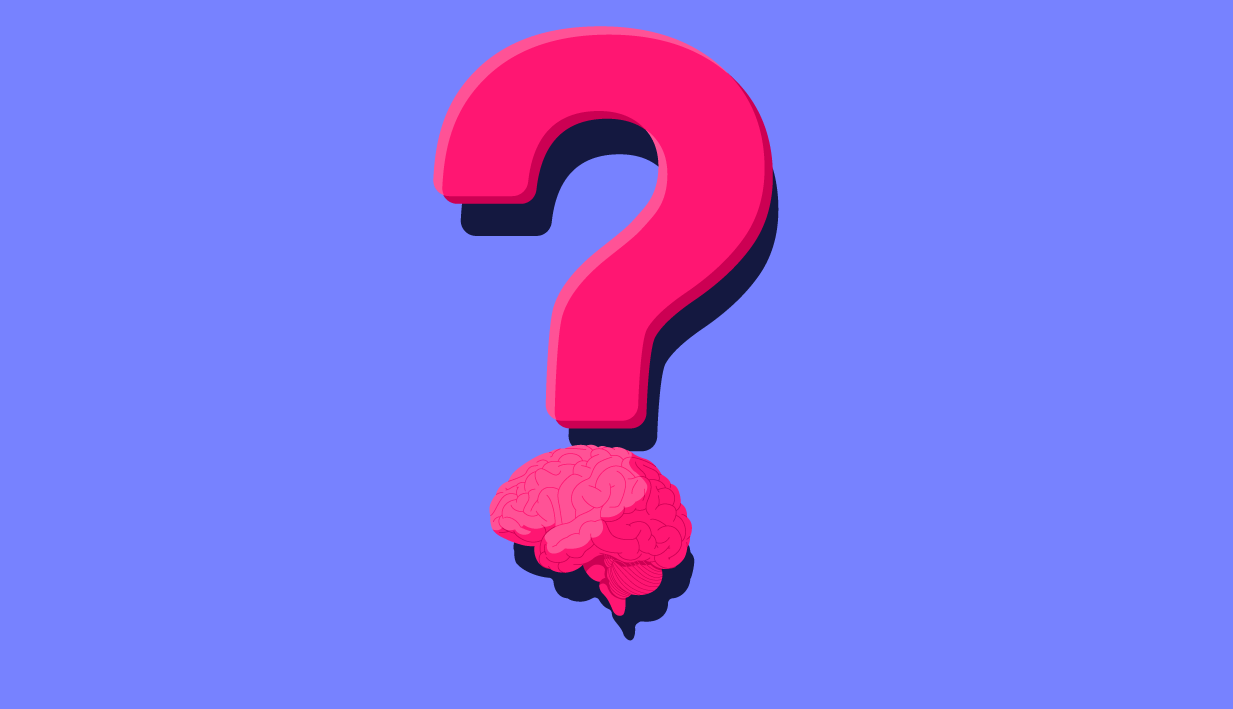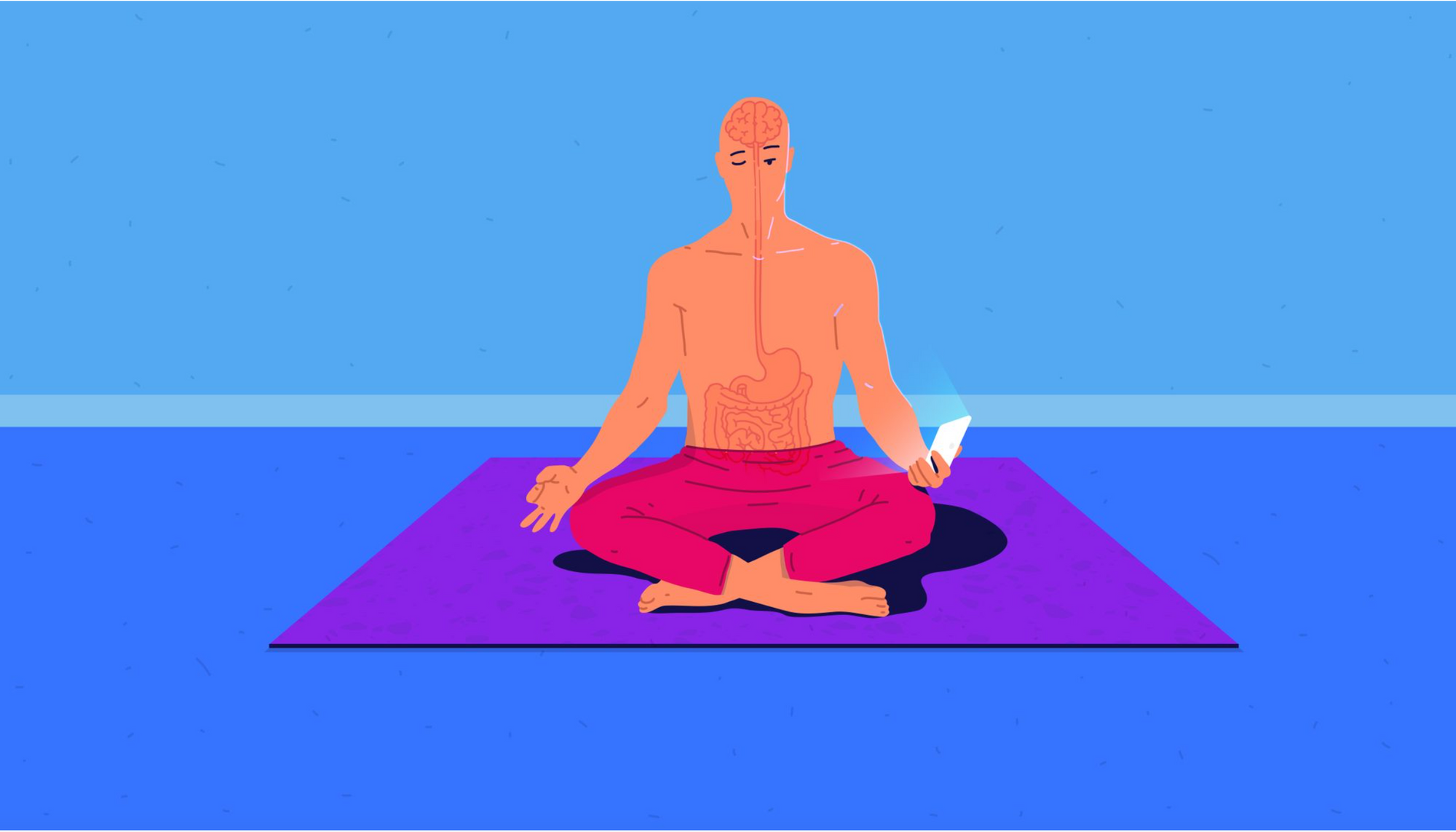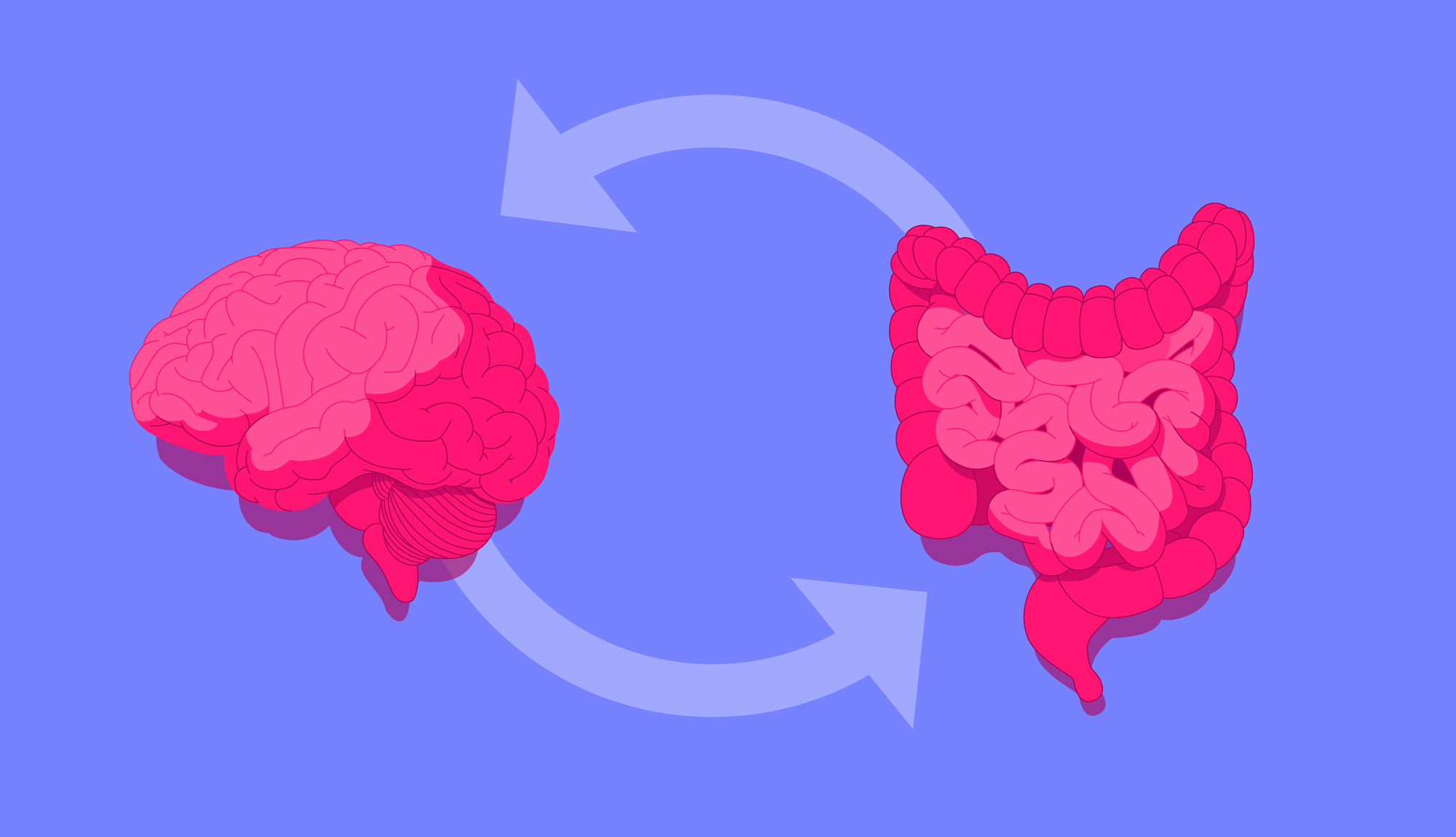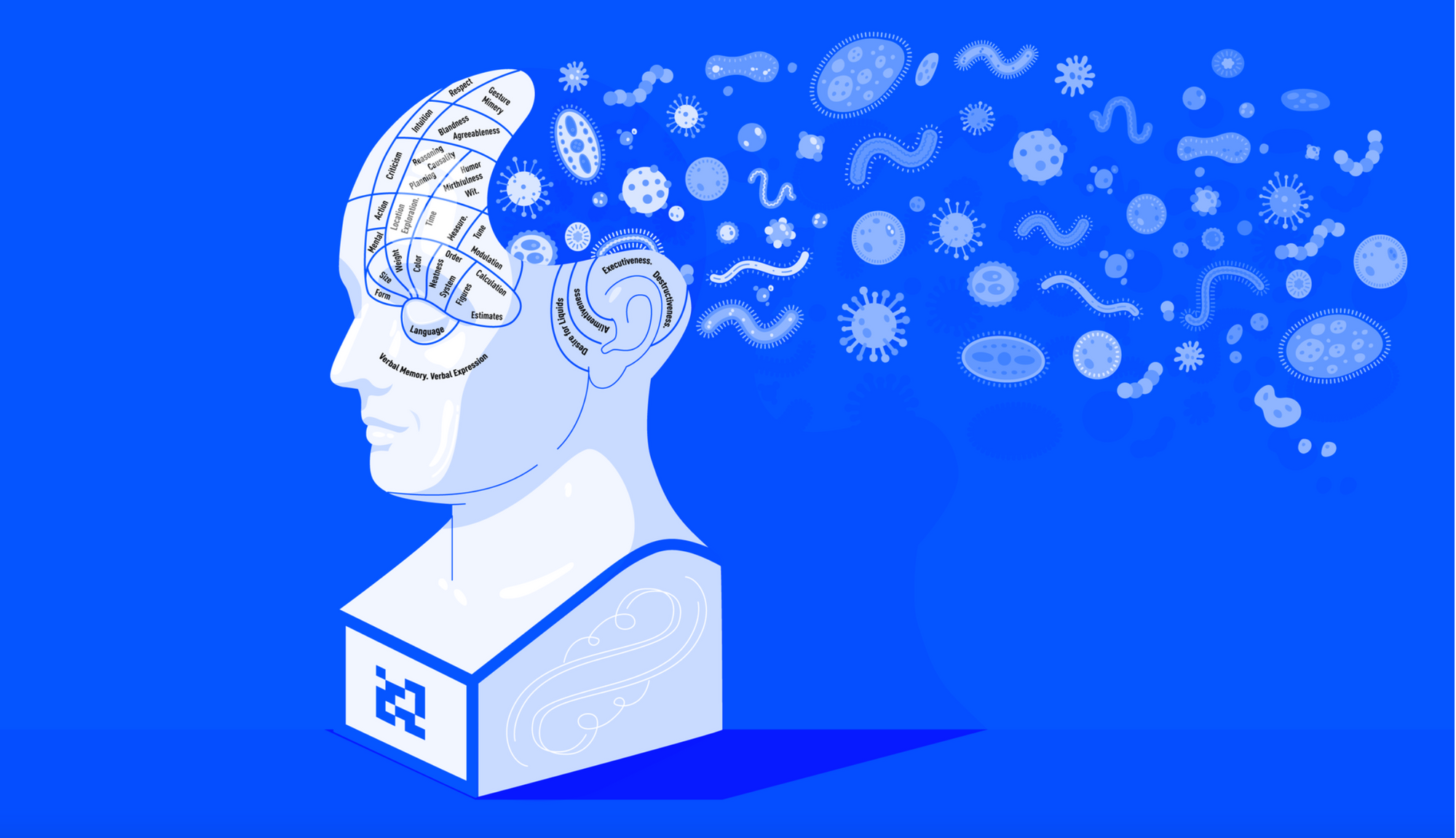May marks Mental Health Awareness Week, a campaign to increase mental health literacy, tackle stigma and empower us to improve our mental wellbeing.
One in four people will experience a mental health problem each year in England, whilst one in six reports experiencing a common mental health problem such as anxiety or depression in any given week.
Despite this, harmful myths and misconceptions continue to thrive, breeding stigma and preventing people from seeking treatment for mental health issues. To redress this, we tackle ten common mental health myths and separate the fact from fiction:
Table of contents
- MYTH 1: Mental and physical health are separate
- MYTH 2: Mental health issues are a sign of weakness
- MYTH 3: Mental health issues are uncommon
- MYTH 4: Mental health only affects certain people
- MYTH 5: You have to be underweight to have an eating disorder
- MYTH 6: OCD is a personality quirk, and it’s possible to be “a little bit” OCD
- MYTH 7: You can’t hold down a job if you have a mental illness
- MYTH 8: There is no cure for mental health issues
- MYTH 9: You can tell who has a mental health disorder by looking at them
- MYTH 10: Self-harm is a form of attention-seeking
- Useful links
MYTH 1: Mental and physical health are separate
Mental and physical health are linked in numerous, complex ways. Naturally, poor physical health can impact mental health, whether that be through social isolation or pain. But this connection works both ways, and your mental health can impact your physical health, also.
For example, let’s take the theme for this year: loneliness. Social isolation can lead to depression, but loneliness has also been linked to high blood pressure and a weakened immune system.
What’s more, In one study looking at over 2000 American citizens aged 50+, loneliness was identified as a risk factor for morbidity and mortality. Other studies have shown that loneliness can lead to reduced physical activity, impaired sleep and depressive symptoms, translating to health issues.
In short, these two ostensibly separate organs communicate bi-directionally via the vagus nerve and central nervous system. In practice, this means that a troubled mind can lead to a troubled gut and vice versa.
If you have ever felt “butterflies in your stomach” or needed to go to the toilet due to nerves, you’ve felt the gut-brain axis in action.
Whichever way you cut it, the mind and the body, far from being entirely unrelated, are intimately connected. In light of this, it’s about time we stopped speaking about mental and physical health as separate issues.
MYTH 2: Mental health problems are a sign of weakness
Mental health issues are no more a sign of weakness than a broken leg is, which is to say, not at all.
Mental health conditions often have a genetic component and require treatment like any other condition, whether talking therapy or medication.
Moreover, individuals who have a mental illness, be that an eating disorder or depression, can’t simply “snap out” of the condition any more than you can will yourself to feel better from the common cold.
MYTH 3: Mental health issues are uncommon
One in four people will experience a mental health issue each year in the UK, whilst one in six reports experiencing a common mental health problem such as anxiety or depression in any given week.
Moreover, one in five people report having suicidal thoughts during their lifetime, whilst one in fifteen self-harm. When you bear in mind the number of people who don’t report these behaviours, the reality could be much higher.
Almost all of us will know someone who has a mental illness, whether a family member, friend, colleague or partner.
MYTH 4: Mental health only affects certain people
Mental illness doesn’t discriminate and can affect anyone regardless of income, upbringing, race or gender; just as no one is immune to physical health issues, neither is anyone immune to mental health issues either.
Remember, just because someone has a good job, a loving family, supportive friends, or good health doesn’t mean they can’t be depressed.
Mental illness requires treatment, not judgement, and being depressed is NOT the same as being ungrateful!
MYTH 5: You have to be underweight to have an eating disorder
An eating disorder involves disordered thinking about food, which can exist at any weight.
Lastly, orthorexia is when someone develops an unhealthy obsession with healthy eating and can severely affect someone’s quality of life. Those with the disorder may be noticeably muscled or have an athletic physique, yet they still suffer from an eating disorder.
In short, whilst weight loss can be a symptom of some eating disorders, it is not universal nor necessary for a diagnosis.
MYTH 6: OCD is a personality quirk and it’s possible to be “a little bit” OCD

Obsessive-Compulsive Disorder (OCD) is one of the most misunderstood disorders out there.
Far from being a mere personality quirk in which someone colour codes skittles, the World Health Organisation ranks OCD as one of the top-10 most debilitating disorders.
OCD is a disorder where someone has an obsession and seeks to relieve anxiety by performing compulsions. For example, an OCD sufferer may fear that their family will be harmed unless they touch a doorknob four times or contract an illness if they do not wash their hands in a specific way.
OCD is not always visible either; Pure OCD is when someone mentally performs rituals, such as repeating words or prayers to “undo” intrusive thoughts. The stereotype that OCD is synonymous with being a neat freak can prevent those with the disorder from speaking out or seeking treatment.
With this in mind, saying that you are “a little bit” OCD undermines the daily struggle of those who battle this disorder.
MYTH 7: You can’t hold down a job if you have a mental illness
Whilst a mental health crisis can affect someone’s ability to work, many individuals with long-term mental health issues not only manage to hold down jobs but thrive in their chosen fields.
Some of the greatest writers and thinkers to walk the earth struggled with mental health issues, including Ernest Hemingway, Abraham Lincoln, Charles Darwin and Isaac Newton.
If a mental health issue does impact your ability to work, this isn’t a sign of weakness, nor should you be ashamed.
By law, there is no difference between a mental health sick day and a day off for physical problems, such as backache.
If you feel that a mental health issue affects your ability to function day-to-day, reach out to a GP or registered therapist.
With their help and guidance, you can manage your disorder and improve your quality of life. If you had a broken leg, you wouldn't “fight through” hoping that it would heal, and neither should you do so with mental health issues.
MYTH 8: There is no cure for mental health issues

Mental illness is not a life sentence; with therapy, medication, lifestyle changes or a mixture of all three, you can live a happy, fulfilling life with a mental health condition.
Depending on your diagnosis and its causes, the most effective treatment option will vary; but rest assured, help is available.
MYTH 9: You can tell who has a mental health disorder by looking at them
Whilst you may be able to tell if some individuals are suffering from mental health issues, this isn’t always the case. Depression and other conditions take many forms, some visible and others not.
Just because someone goes to work, pays their bills, and socialises doesn't necessarily mean they are not experiencing an inner battle.
In short, while depression can make some individuals sleep more or neglect personal appearance, others continue to function normally and become skilled at hiding their inner turmoil. If someone opens up and says they are experiencing depression, take them at their word.
MYTH 10: Self-harm is a form of attention-seeking
Self-harm is often used as a coping mechanism for emotional pain. Far from being an attention-seeking act, many of those who self-harm go to great lengths to keep the act hidden, wearing long sleeves or bandages.
Whilst self-harming is not a suicidal act, those who self-harm are at an increased risk for suicide, which is why it should always be taken seriously.
Useful links
-
If you need to speak to someone immediately, the Samaritans offer a 24-hour helpline. You can call them on 116 123 or email [email protected] and talk about anything that is upsetting you
-
The charity MIND has compiled a list of valuable contacts for those experiencing a mental health crisis
-
Text Shout at 85258. This is a free, confidential, anonymous text support service operating 24/7. You can text from wherever you are in the UK.
-
If your life is at immediate risk, call 999 or go to A&E now
☝️DISCLAIMER☝This article is for informational purposes only. It is not intended to constitute or be a substitute for professional medical advice, diagnosis, or treatment.




















